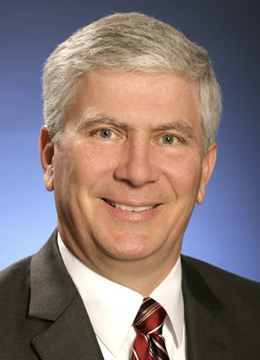Consider the person who contacts our office for help in purchasing a private aircraft. Let’s call him Joe Pilot. Joe is a private pilot who intends to operate his aircraft under Part 91 of the FARs. He may or may not be instrument rated. He is invariably excited at the prospect of owning an airplane for personal and perhaps some business use. Joe can’t wait to take his family and friends up for the mythical $100 hamburger. A smart and careful person by nature, Joe has done some homework and thinks he knows the best way to own the aircraft: through a corporation. (Often he says “Delaware corporation,” which may or may not make sense, but that’s a topic for another day.) He even has a cool name picked out: My Cool Plane Inc. (We’re going to refer to corporations to keep things simple, but the same principles apply to limited liability companies (LLCs)). Both shield you from liability, which must be a good thing when we’re talking about aviation. Right? Joe read in a magazine that owning an airplane through a corporation or LLC is a smart thing to do. Besides, lots of personal aircraft are already registered this way, but it’s not a good reason for Joe to follow the pack and own his airplane the same way.
As a general principle corporations and LLCs can shield owners from some liability. But what if corporate ownership creates other problems that Joe Pilot doesn’t recognize? This is exactly the situation many aircraft owners are in, and they don't even know it, either. FAA regulation can make aircraft ownership through a corporation or LLC a dangerous trap for the unwary pilot. Why? Recently the FAA has begun to crack down on “illegal charters,” flights for compensation or hire that are conducted under Part 91 when they should be subject to the more stringent standards of Parts 119 (commercial operations) or 135 (air carriers).
Joe is a private pilot and so cannot fly for compensation or hire. He plans to his aircraft through an LLC. Owning the aircraft will be the only purpose for having the LLC. He will be the only pilot, operating as PIC mostly for pleasure and personal travel, occasionally with family and friends as passengers. Joe will pay for the gas and other operating expenses himself. No money will change hands so he is not flying for compensation or hire, which would require a commercial pilot certificate. No one uses the plane but him. Although the plane will be owned by a closely held company, he thinks of it as "his" airplane. So what’s the problem?
The problem is that the FAA sees things differently.
Joe will be astounded to learn that, by regulation, the FAA considers his LLC to be a "flight department company." And flight department companies must comply with more stringent and complex regulations that most of us typically think apply only to air carriers and charter companies. In short, although Joe does not yet realize it, if he proceeds with his plan to form an LLC and have it own the airplane, he could need a commercial operator certificate issued under Part 119 or an air carrier certificate issued under Part 135. That’s what the regulations say and the FAA is getting serious about enforcing them.
If Joe were to own the aircraft in his own name, and not through a separate company, he would avoid this problem. If he owned the aircraft through a corporation that engaged in another business for which the aircraft is a tool, he probably would not have this problem. But because Joe has chosen to create a company for the sole purpose of owning his aircraft, he has created a potentially big problem for himself.
The reason is that the FAA focuses on the legal form of ownership. Joe Pilot is a legal person. My Cool Plane Inc. is a separate legal person, even though Joe will be the sole owner the company and control the operation of the aircraft. The FAA does not look at the underlying intent of this form of ownership. It looks only at the legal structure. And because under Joe’s chosen structure My Cool Plane Inc. owns the aircraft, the FAA considers My Cool Plane Inc. to be a flight department company. That means flight department rules must be adhered to, and that means certification under Parts 119 or 135.
Failure to comply with puts the owner-operator at risk of sanctions including substantial monetary penalties and FAA enforcement action.
In our next post, we will consider those risks in more detail. In a third, we will suggest a possible answer to the question whether My Cool Plane Inc. can legally own Joe’s new dream bird without getting involved with the cost and complexities of functioning under commercial standards.
Continue to Part 2
